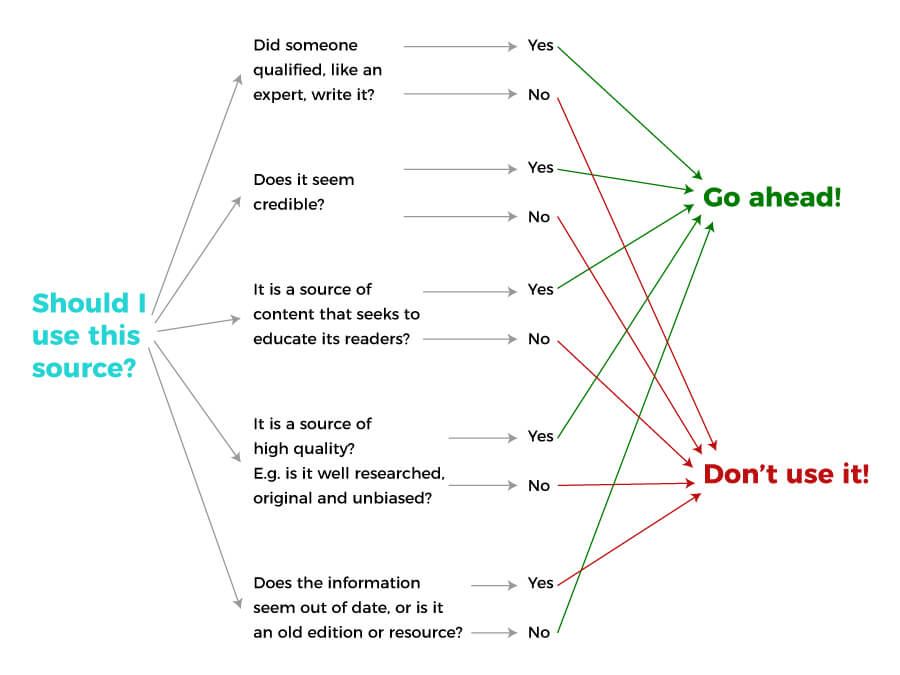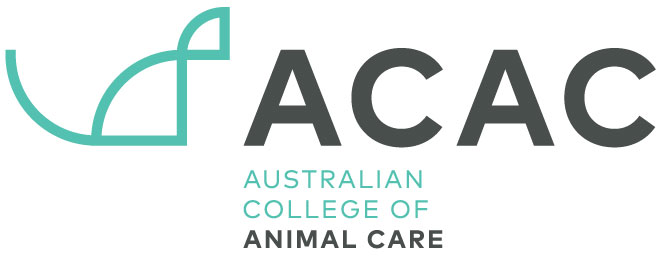Guide to Plagiarism, Research and Referencing
EVALUATING YOUR SOURCES
ACADEMIC HONESTY
What is Plagiarism & Why is it Important to Avoid?
What is Collusion & Why is it Important to Avoid?
How do I Ethically Use AI in my Study?
Can Students Use AI to Assist With Study and Assessments?
Strategies for Avoiding Plagiarism
Research
What is Research and Why is it Important?
What Should You Avoid When Researching?
Referencing
When conducting research, it is important to critically evaluate your sources to ensure they are accurate, up-to-date, and credible. Unreliable sources can lead to misinformation, poor decision-making, and even plagiarism.
Questions to Ask When Evaluating a Source
Before using a source, consider the following:
👉 Are the authors qualified?
- Do they have relevant education, experience, or credentials in the field?
- Are they associated with a reputable organisation, university, or industry body?
👉 Is the information current?
- Medicine and animal care are constantly evolving.
- Check publication dates – avoid outdated textbooks and research (anything over 10 years old may be unreliable).
- For websites, check when they were last updated.
👉 Is the information well-researched?
- Are sources cited and referenced properly?
- Does the content link to scientific studies, academic journals, or expert opinions?
👉 Does the source show bias?
- Is it educational or is it trying to sell a product, service, or opinion?
- Does it present a balanced, well-researched perspective?
If a source seems questionable, outdated, or biased, ask for guidance or avoid using it altogether.

Common sources to avoid
❌ Wikipedia
- Why? Anyone can edit Wikipedia, making it unreliable as a primary source.
- Can I use it at all? Wikipedia is useful for background research, but always verify information using credible sources (e.g., academic journals, textbooks).
❌ Breeding Forums & Online Animal Groups
- Why? These forums often contain opinions rather than scientific facts.
- What should I do instead? If you find useful advice, cross-check it with a credible source (e.g., veterinary research, textbooks, or expert publications).
❌ Social Media & Unverified Websites
(e.g., Facebook, Reddit, TikTok, Yahoo Answers, Quora, Answers.com)
- Why? Anyone can post anything, and there is no way to verify credibility.
- What should I do instead? Look for expert-led websites (e.g., government, university, or professional association sites).
❌ Assignment & Essay-Writing Websites
(e.g., Essay Mania, All Free Essays, Studybay)
- Why? These sites often contain plagiarised content and are not peer-reviewed.
- What should I do instead? Always conduct your own research and reference credible sources.
❌ Crowdsourced Information
(e.g., user-generated Q&A websites, crowd-funded research studies)
- Why? These sources collect opinions from the general public, not qualified professionals.
- What should I do instead? Only use verified research from experts.
❌ Unqualified Individuals
What should I do instead? Seek guidance from experts in the field.Example: If you have a question about surgical procedures, ask a veterinarian—not a pet owner or breeder.
Why? Someone without relevant experience or qualifications may unknowingly spread misinformation.
Final Tips for Finding Reliable Information
✅ Prioritise peer-reviewed sources (e.g., Google Scholar, scientific journals, government/educational websites).
✅ Cross-check information – If multiple credible sources agree, it is likely reliable.
✅ Use sources that cite evidence – Opinions without supporting data should be avoided.
✅ Ask for guidance – If unsure, consult an educator, mentor, or industry professional.
By avoiding unreliable sources and using evidence-based research, you ensure that your knowledge and decisions are accurate, ethical, and professional.
